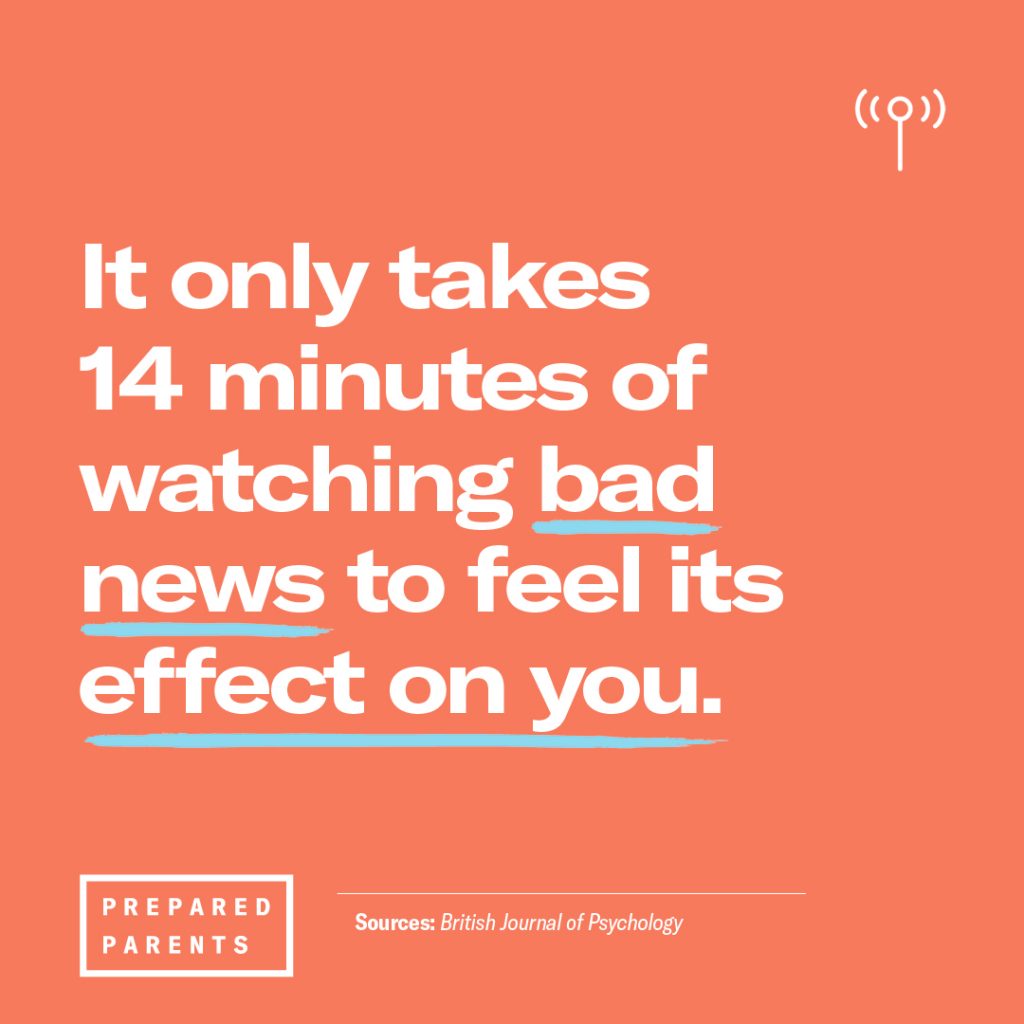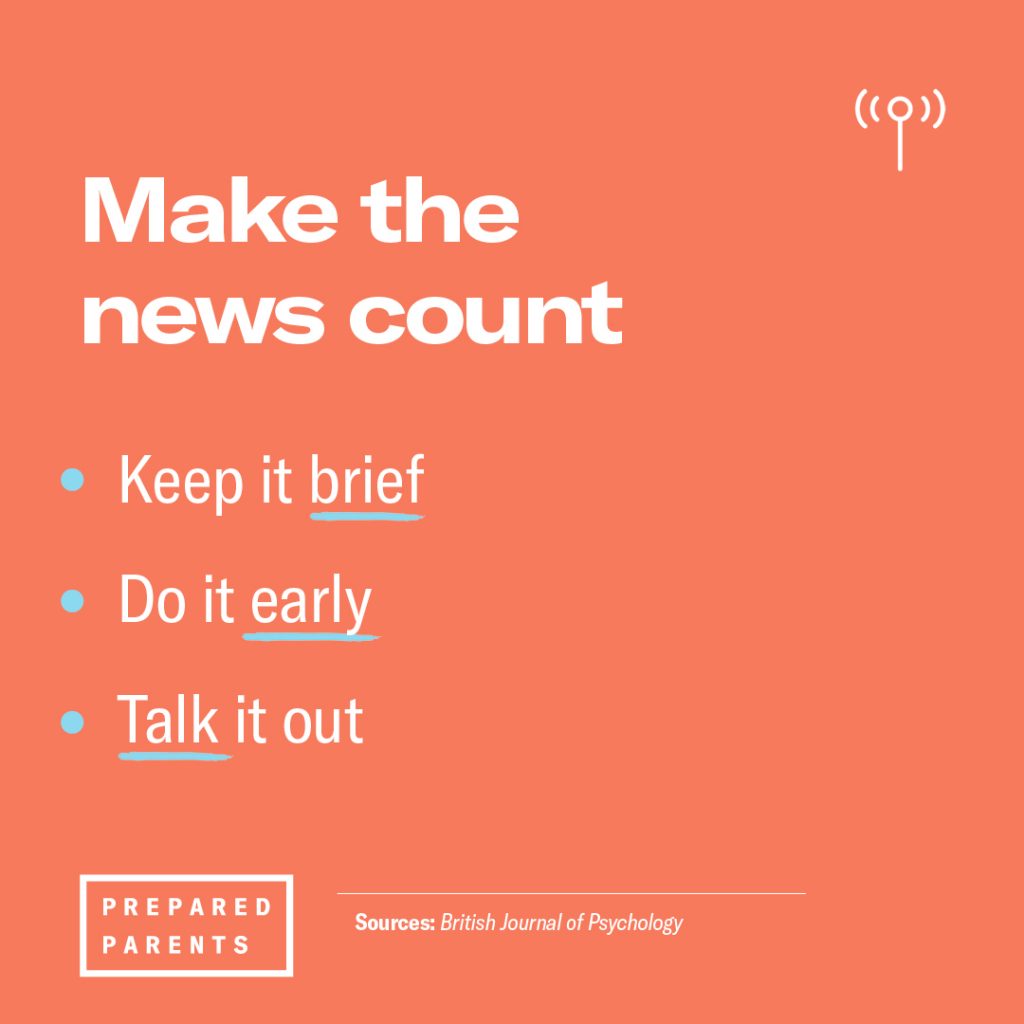We all want the COVID-19 pandemic to end—watching the number of cases rise and fall in city after city, state after state, can feel like a worthwhile way to stay informed. But is staying tuned-in actually harming your family’s ability to cope with the crisis? Research says yes.

Heavy news exposure can have negative effects on our well-being—and our kids. While media can be educational and entertaining for kids, it can also be damaging. Study after study shows how watching too much news can be bad for your health.
One 2011 study in the British Journal of Psychology showcases that it only takes 14 minutes of watching bad news to feel its effect on you. In other studies on the mental health effects of the 9/11 World Trade Center attacks in children, researchers found that proximity to the attacks was not the only factor in predicting post traumatic stress disorders (PTSD) in kids—exposure to news coverage of the attacks also increased their risk of developing PTSD. Research shows that watching the news—rather than just reading or listening to it—results in a stronger emotional response and greater memory. It’s no wonder then, why TV news has a particularly negative effect on viewers.
For parents and kids alike, anxiety-inducing content—like non-stop updates on the COVID-19 pandemic, social unrest, or political outrage—can lead to higher stress and anxiety levels. So, we’ve got a few ideas on how you can step away from the news to protect your family’s sanity.
Make the news count
When you do watch the news, whether solo or with others in your family, keep it brief, do it early, and talk it out:

- Keep it brief: Set a time limit for daily news watching. It’s important to stay up-to-date on the world around you, but don’t obsess over every detail. Understand how you want to get your news—daily podcast, morning broadcast news, local newspaper, a mobile app—and then stick with that routine. Routines promote consistency and calm.
- Do it early: Watching the news late at night can ruin a good night’s sleep. Instead, get your daily news dose in the morning, so that your brain can process the new information throughout the day. If your kids are tuning in too, it gives them all day to process the news and ask questions.
- Talk it out: Discussing the news is an important part of processing. If your kids are consuming news with you, consider asking them about the news directly after each daily dose. Stay in tune with their worries and curiosity about the headlines.
- Address their concerns: If your kid starts asking questions or expressing worry about the news they encounter, take that as a cue to talk out their anxieties.
- Follow their curiosity: You may find that the news incites interest in a specific topic, such as public health, science, or public service. Follow that curiosity—you may find an opportunity for a real-world learning moment through projects at home!
Not all screen time is bad
Watching hours of stressful news and scrolling through depressing social media posts can be harmful, but not all screen time is bad. There are also positive ways to entertain yourself and your family with screens. Instead of binge-watching the latest bad news or “doom scrolling” through social media, consider putting on an uplifting movie or TV show.
Since we’re also in the age of video conferencing, consider ways to connect with friends and family with video calls. Host a digital show-and-tell, cooking show, or talent show with kids and parents in the neighborhood.
Get beyond the screen
Even better, consider switching off the devices and getting active! Encourage your kid to write their living history, get serious about play, explore a new interest, or laugh it up.
By replacing those extra minutes (or hours!) of anxiety-inducing media with other more active pursuits, we may find that we can keep events in better perspective and reduce some of the negative effects that come from too much news.

